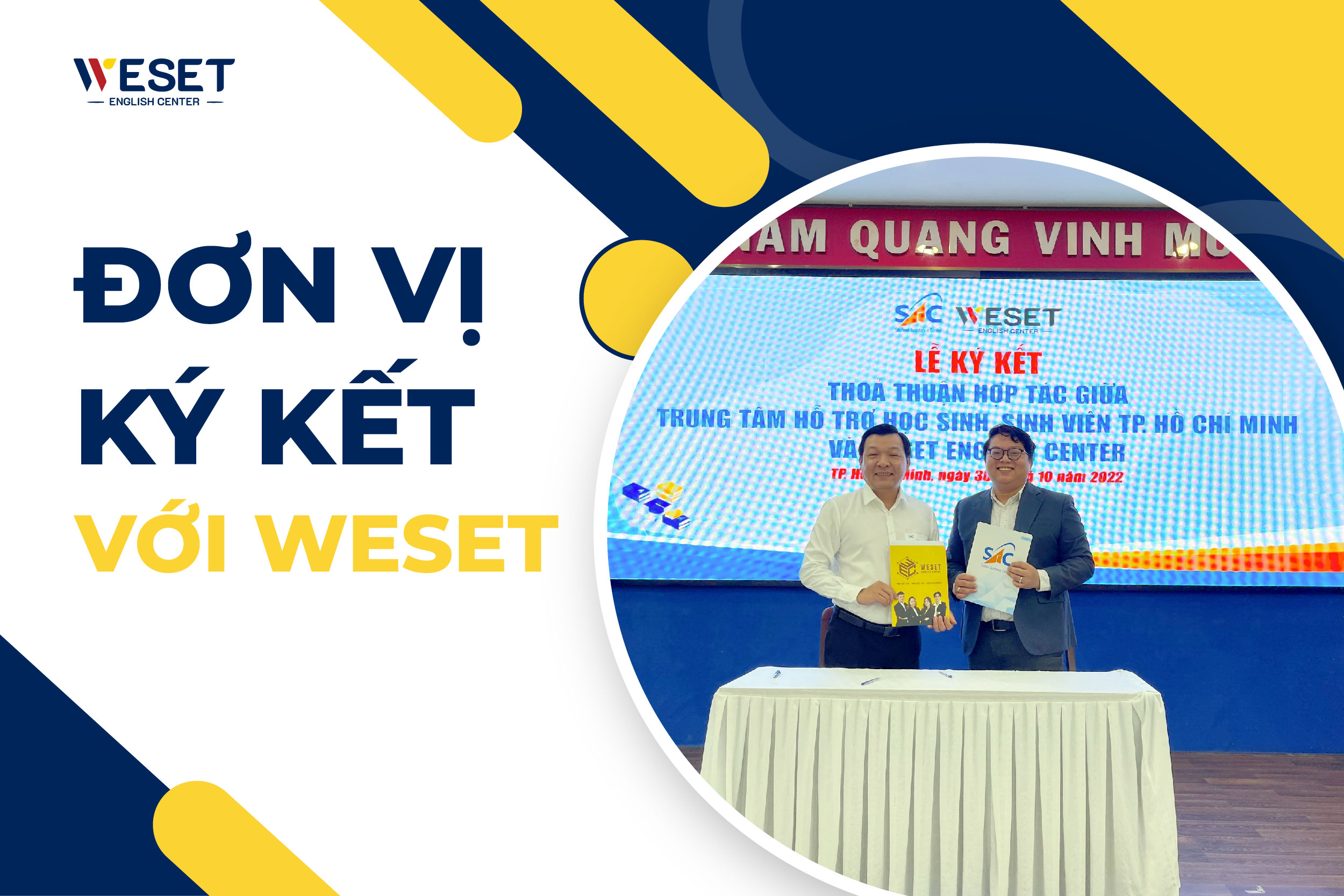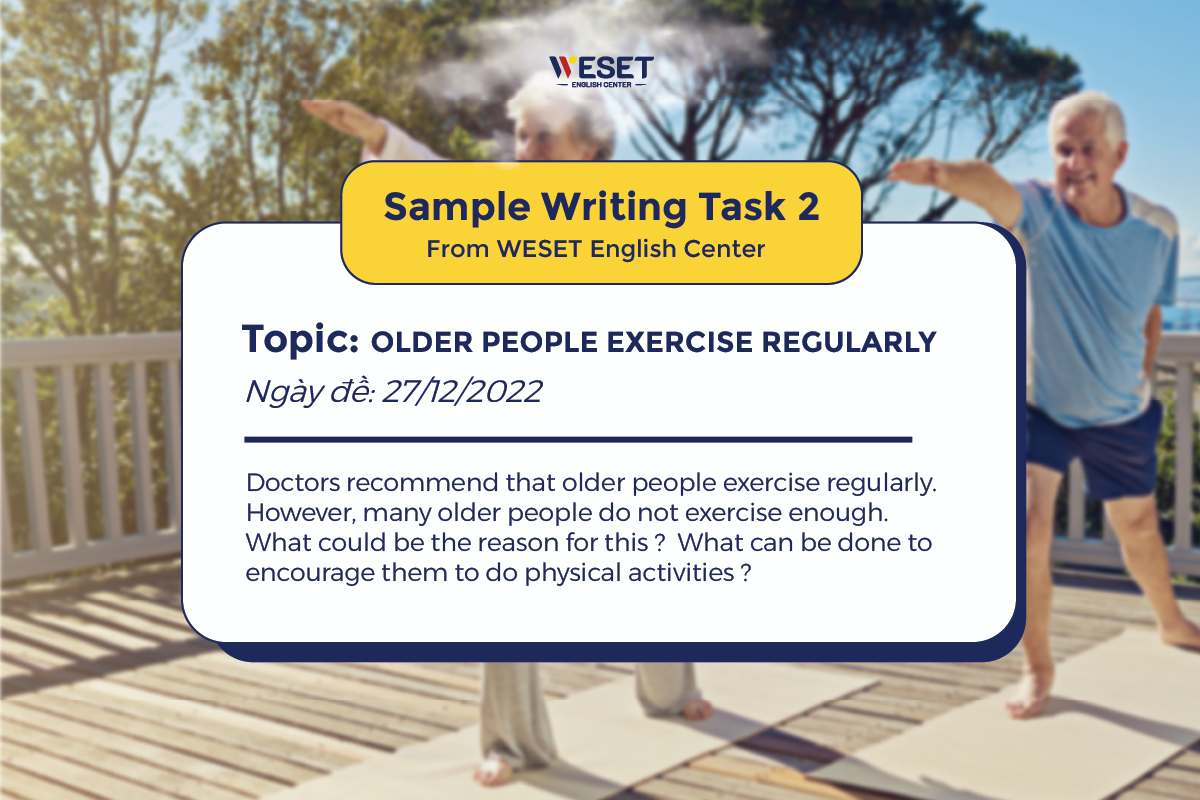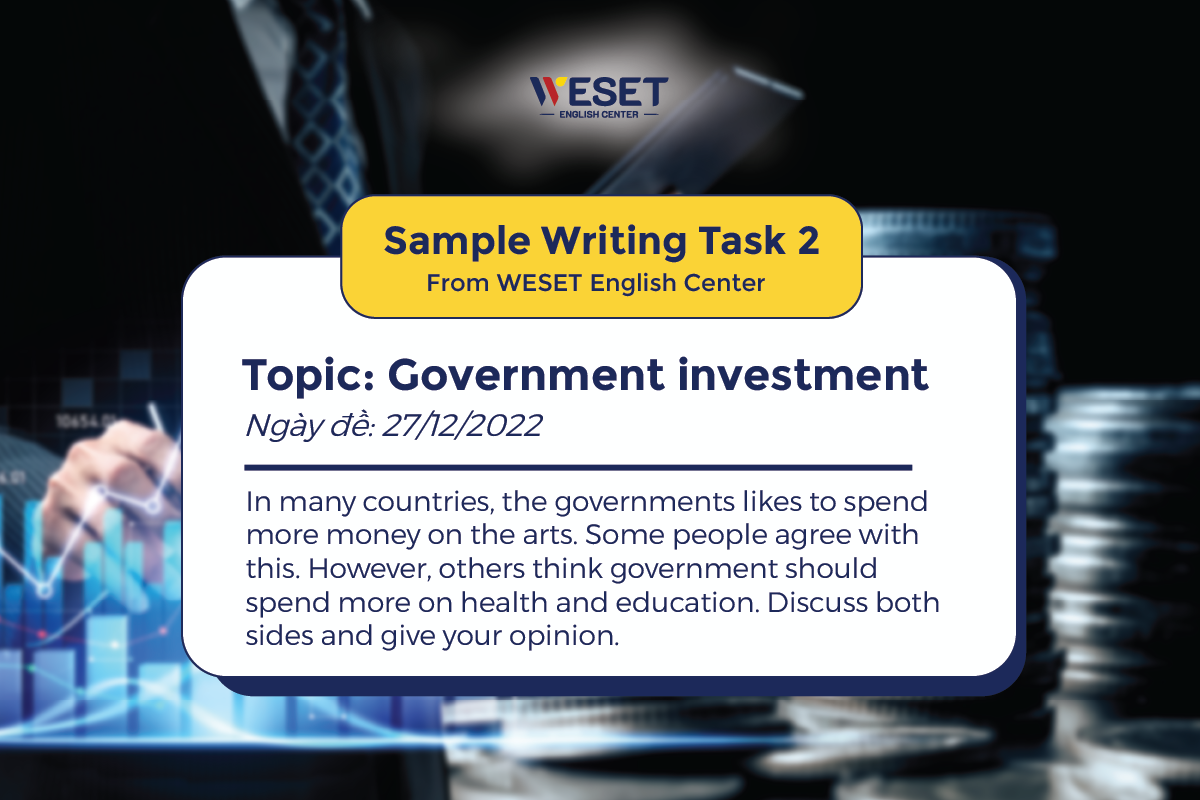GIẢI ĐỀ THI IELTS WRITING TASK 2 NGÀY 15/01/2022| DẠNG ADVANTAGES AND DISVANTAGES
- Đan Hạ
- Bài mẫu IELTS Sample Writing, Bài mẫu Task 2 IELTS Writing sample, Bài thi IELTS mẫu
- 04/08/2022
MỤC LỤC
Đề bài:
“Some think that people should not change their jobs while others think they should because it brings advantages for themselves, company and society. Discuss and give opinion”
“Một số người cho rằng việc gắn bó lâu dài với công việc hiện tại sẽ giúp con đường sự nghiệp của họ gặp nhiều thuận lợi và dễ thăng tiến hơn. Tuy nhiên, một số khác lại nghĩ rằng nhảy việc mang lại cho họ nhiều kinh nghiệm và vô vàn cơ hội hấp dẫn. Vậy còn bạn, bạn lựa chọn thuộc hệ nhảy việc hay hệ trung thành?”
Hãy cùng WESET thảo luận về chủ đề này nhé.
1. Hướng dẫn làm bài:
1.1. Phân tích đề:
Trong bài viết Giải đề thi IELTS Writing task 2 ngày 29/04/2021 trước đây, WESET từng có đề cập rằng đối với dạng đề Advantages/ Disadvantages, bạn cần phân biệt rõ và cách làm của cho từng loại:
Loại 1: Đề chỉ yêu cầu phân tích ưu/ nhược điểm của vấn đề.
(Discuss the advantages and disdvantages)
Loại 2: Đề yêu cầu nêu ưu/ nhược điểm của vấn đề và bày tỏ quan điểm cá nhân.
(Discuss the advantages and disdvantages and give your opinion.)
Đề thi trên thuộc loại 2, có nêu quan điểm cá nhân.
1.2. Cấu trúc chung:
Đối với dạng bài bài, cấu trúc sẽ bao gồm 4 phần: Introduction, Body 1, Body 2, Conclusion.
A/ Introduction: Paraphrase đề bài.
Lưu ý: Đối với đề có Give your opinion, bạn phải đưa ý kiến của mình vào câu 2 của đoạn Introduction, tức là nêu quan điểm của bạn nghiêng về bên nào hơn, thuận lợi (advantages) hay bất lợi (disadvantages).
B/ Body 1:
- Phân tích những thuận lợi;
- Nêu kèm ví dụ & câu giải thích cho 2 ý kiến ấy.
C/ Body 2:
- Phân tích những bất lợi;
- Nêu kèm ví dụ & câu giải thích cho 2 ý kiến ấy.
D/ Conclusion: Nhắc lại ngắn gọn vấn đề và quan điểm cá nhân.
1.3. Dàn bài:
A/ Introduction: Paraphrase đề bài và thể hiện quan điểm của bản thân (tiếp tục làm công việc hiện tại hay nhảy việc).
B/ Body 1: Phân tích và chứng minh quan điểm không nên nhảy việc.
Ví dụ: Gặt hái nhiều kiến thức và kinh nghiệm (Gain a diverse range of knowledge and experience).
C/ Body 2: Phân tích và chứng minh quan điểm nên nhảy việc.
Ví dụ:
– Có kiến thức chuyên môn và vững chắc trong một ngành được đánh giá cao hơn việc có nhiều kiến thức đa dạng (Having specialised and solid knowledge in an industry is more valued than having a diverse range of knowledge);
– Không cần phải thích nghi với môi trường làm việc mới (Do not have to adapt to new working environments).
D/ Conclusion: Khẳng định lại quan điểm cá nhân.
2. Bài mẫu và từ vựng
2.1. Bài mẫu
People have opposing opinions about whether we should frequently change our jobs. In this essay, I will analyse both sides of the argument before arriving at my conclusion.
There are certain reasons why people think that it is a good idea for employees to change their jobs. The most important reason is that this is believed to help employees to have a diverse range of knowledge and experience. When they take up employment in a different company in the same industry, or a company in another industry, they have the chance to learn new knowledge and skills. For example, a lawyer working in a law firm can learn much if starting working in the legal department of a manufacturing company; this is because the nature of the work at the two companies are different. The diverse skill set that a person who frequently changes his/her job has allows this person to perform better at work and be entitled to a higher salary and better job-related benefits.
However, I do not think that we should change our jobs frequently. First, I believe that having specialised and solid knowledge and skills in an industry is more valued than having a diverse range of knowledge. Tasks at work are best performed by employees who have done the same tasks for years and know how to perform them the most productively. For example, a doctor who masters a certain field of medicine is more valued by patients than the one that knows a lot of fields but does not specialise in any field. Another argument against frequently changing jobs is that when we change our occupation, we have to learn how to adapt to a new working environment. This is a time-consuming and sometimes stressful task.
In conclusion, although there are certain reasons why people advocate changing jobs frequently, I support the argument that we should stay in the same job for as long as we can.
2.2. Từ vựng
- To arrive at a conclusion (v): to reach a conclusion (đi tới kết luận).
-> I can’t arrive at any conclusions from what he said.
- Diverse (adj): very different from each other and of various kinds (đa dạng)
-> My interests are very diverse.
- To take up employment (v): to start a job (bắt đầu một công việc)
-> He took up employment with the company in May 2021.
- Industry (n): the people and activities involved in producing a particular thing, or in providing a particular service (ngành nghề)
-> She works in the banking industry.
- Firm (n): a business or company (công ty)
-> He works for a law firm based in London.
- Department (n): A section of a business/government/university (phòng, ban)
-> She used to work in the IT department.
- Manufacturing (n): the business or industry of producing goods in large quantities in factories, etc. (ngành công nghiệp chế tạo)
-> Many jobs in manufacturing were lost during COVID-19.
- Be entitled (adj) to sth: Have the right to have or do something (có quyền)
-> You will be entitled to a salary of $… per month.
- Adapt (v) to sth: change your behaviour in order to deal more successfully with a new situation (thích nghi)
-> We have to adapt quickly to the new system.
- Advocate (v): support something publicly (ủng hộ)
-> We do not advocate the use of violence.
Để nắm rõ về các kỹ thuật và phương pháp giải quyết nhanh gọn các dạng đề Writing khó nhằn, các bạn có thể tham khảo khoá luyện chuyên sâu Speaking & Writing của WESET tại đây >> https://bit.ly/IELTSINTENSIVE
Tham khảo thêm bài mẫu và bài viết liên quan:
Giải mã IELTS Writing Task 2 dạng “Discuss both views” cùng WESET





